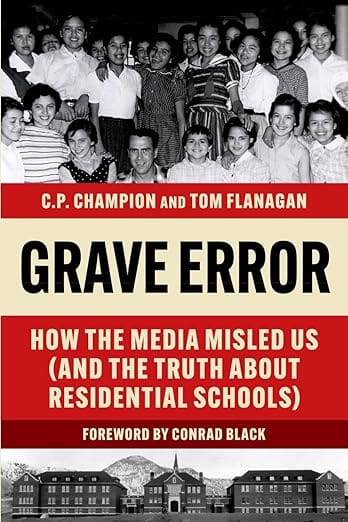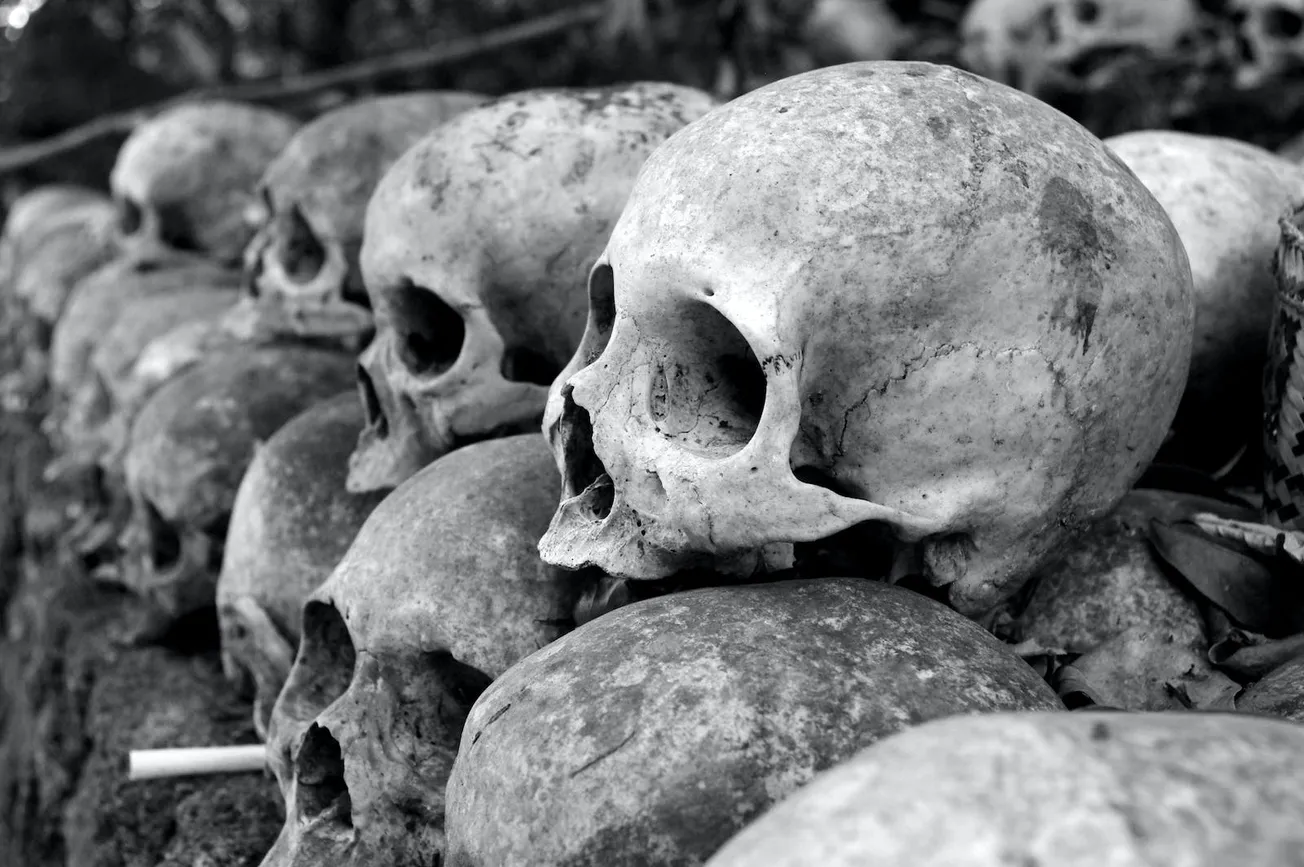Table of Contents
Barbara Kay
Barbara Kay lives in Montreal. She is a columnist for the National Post, the Epoch Times and the WesternStandardOnline.com.
“Canadians deserve to know the truth,” Federal Opposition leader Pierre Poilievre told reporters earlier this week, regarding 2021 claims made — but never investigated — of unmarked graves at the Kamloops, British Columbia Indian residential school. Poilievre said he was open to “a full investigation into the potential remains at Residential Schools,” wherever that may lead.
This is a bold move, taken in the full knowledge that the Liberals will put a demonizing spin on his comments, even though the Conservative leader also said that “the residential schools were an appalling abuse of power by the state and by the Church at the time.”
If Poilievre feels confident to, as he put it, “stand in favour of historical accuracy” on this file, then he believes a critical mass of Canadians will support the proposal.
Trudeau’s government, by contrast, is wedded to the unquestioning, emotive approach to IRS history. From the day that First Nations announced the “discovery” of 215 unmarked graves in Kamloops, arising solely from a finding of “soil disturbances” by ground penetrating radar the Liberals sprang into supportive action. They were emboldened by an overzealous media, starting with the New York Times, which falsely claimed a “mass grave” had been found. Flags were lowered, and Trudeau issued a plangent apology for the children “whose lives were taken” at Kamloops.
Only there was no evidence of lives illicitly “taken.” To date, in spite of the government’s allocation of C$7.9 million for the task, no excavation has been done at Kamloops. Excavations in other suspected sites have not turned up human remains. But the media long avoided contrarian copy. (National Post columnist Terry Glavin’s May 2022 feature article on the graves broke the mainstream silence.)
Not that there wasn’t any published pushback. There was plenty, from a cadre of highly accredited scholars, investigative journalists, judges, lawyers and independent researchers, who have amongst themselves amassed probably a million hours of research into all facets of government-Indigenous relations, including the IRS. Only they appeared in non-mainstream media, such as C2C Journal, the Dorchester Review, True North, the Western Standard, the Frontier Centre for Public Policy, Quillette and in some cases their own substacks. For their pains, most of them were labelled “deniers” by media and politicians.

Excellent articles on the IRS by these indefatigable researchers have now been compiled into a single volume, Grave Error: How the media misled us (and the truth about residential schools), edited by historian Chris Champion, publisher of the Dorchester Review, and Tom Flanagan, professor emeritus of political science at the University of Calgary and chair of the Indian Residential Schools Research Group (I am an IRSRG board member).
Conrad Black’s spirited foreword to the book levels a blistering critique at the Trudeau government for “legitimizing and declining to offer any legal or public relations defence against escalating and profoundly false allegations that constitute blood libels against the British and French founding peoples of this country.”
It should go without saying that neither Black nor any contributor to Grave Error denies that serious abuses occurred at the schools. But even serious abuses are not genocide. Overstatement of IRS harms, and understatement of benign IRS intentions and positive outcomes, have had serious consequences, most notably the burning or vandalism of 83 churches, shamefully soft-pedalled by the government as “understandable.”
Together, the various writers tackle all the fallacies put forward in the Kamloops narrative and rebut them with evidence. Amongst other realities: most Indigenous children did not attend IRS; the schools were not mandatory until 1920; residential schools did not destroy Indigenous languages, though students were discouraged from speaking their languages in school; and there are no “missing children,” only a failure of the Truth and Reconciliation Commission’s researchers to consult a vast archive of documentation available to them.
Published by True North and Dorchester Books on December 5, the book is enjoying great success, even though it is only sold on Amazon. In Canada, 500 sales constitute an academic bestseller. True North’s founder and editor-in-chief Candice Malcolm told me that Grave Error sold around 500 copies on the first day, and nearly 2,000 copies in the first week alone. At one point in December, Malcolm said, it was the no. 1 bestselling non-fiction book on all of Amazon.ca — outselling books by Prince Harry, Britney Spears and Matthew Perry.
No mainstream publisher would have touched this book with a ten-foot pole. And yet, as Malcolm tells me, “at this rate, this book will be read by tens of thousands of Canadians without the title ever once appearing in the Globe and Mail or on the CBC.”
Ken Whyte, publisher of Sutherland House, which produces a-political “intelligent narrative” non-fiction, devoted the 226th edition of SHuSH, his company newsletter, to the phenomenon of Canada’s conservative “non-publishers,” like True North, Rebel News and the Aristotle Foundation (which recently published the successful book, “The 1867 Project,” still the no. 1 bestseller in Amazon’s Canadian history category). None of these publishers gets grants, as publishing houses that won’t touch conservative authors do. Yet all are putting out profitable bestsellers.
Whyte, who is also a former National Post editor, begins with Grave Error and goes on to cite other commercial successes, such as “Hold the Line,” by Tamara Lich of Convoy fame, published by Rebel News Network, which is the no. 1 bestseller in Canadian biographies. He notes that Lich’s book has about 1,700 positive reviews, or four times as many as the Mark Messier biography “for which Simon & Schuster paid $1 million.”
Malcolm told me True North was “delighted” to publish Grave Error, because the unmarked graves story was “the biggest moral panic in Canadian history.”
I’m confident that every Canadian who does read it will back Polievre’s support for a full investigation. It is high time that “reconciliation” and evidence-based “truth” share the same public forums. We’ll never achieve the former without the latter.









